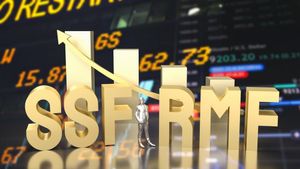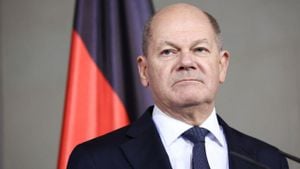The health of Pope Francis remains critically unstable as the 87-year-old pontiff fights against severe respiratory issues and other serious medical complications. According to various reports from the Vatican, the Pope is currently hospitalized at the Gemelli Hospital in Rome, where he is receiving intensive care due to his alarming symptoms.
The Vatican confirmed on Saturday, February 22, 2025, the Pope suffered prolonged asthma-related respiratory distress, necessitating high-flow oxygen therapy and blood transfusions due to thrombocytopenia and anemia. "The situation remains grave as the Holy Father presented another respiratory crisis this morning," stated the official Vatican bulletin. Widespread concern among the faithful has surged, particularly as discussions about the protocols for papal succession continue to heat up.
The question on many minds is: what happens when a pope passes away? The hierarchical succession of the papacy is guided by the Apostolic Constitution Universi Dominici Gregis, which was promulgated by Pope John Paul II in 1996 and later updated by Pope Francis. Here’s how the process works: upon confirmation of the pope’s death by the Cardinal Camerlengo, access to the papal apartment is restricted, and the news is officially announced to the people. Subsequently, the Cardinal removes and destroys the Pope's Fisherman's Ring, signifying the end of his papacy.
The election of the new Pope follows through the conclave, which consists of the College of Cardinals. It’s important to note only cardinals under 80 years old can vote, which currently includes around 140 cardinals after the recent appointments made by Pope Francis. Following secret deliberations, the new pontiff is announced via the traditional white smoke signal from the Sistine Chapel, signaling the conclusion of the conclave with the phrase "Habemus Papam".
Among the potential successors are two prominent Mexican cardinals: Carlos Aguiar Retes, the primate archbishop of Mexico, and Francisco Robles Ortega, the archbishop of Guadalajara. Both are 75 years old, making them eligible candidates. While they are not currently listed among the favorites for succession, history shows surprises can emerge. After all, Pope Francis himself was not favored before he became pope on March 13, 2013.
There remains significant speculation surrounding how the papacy might adapt to the health challenges currently facing Pope Francis, especially since there are no clear protocols for what transpires if a pope becomes incapacitated but is not deceased. Unlike with bishops whose incapacitations follow specific canonical guidelines, there are no precise regulations for the Vatican concerning such situations.
Pope Francis's hospitalization has highlighted the ambiguity concerning the governance of the Catholic Church during his illness. He retains the title and responsibilities of the pope, continuing to be involved as much as his condition allows, having recently participated in mass with his caregivers, conveying gratitude for the worldwide prayers and support he has received. "I thank you dearly for all the messages of affection and the drawings sent by children. It has truly touched my heart,” he expressed via the Vatican during his illness.
Emerging from medical updates, as of Sunday, February 23, there were indications of early renal failure, which remains under control, as doctors continue to monitor his fluctuated health. "The complexity of his clinical situation demands caution when discussing his prognosis," medical reports clarify. The Pope will remain hospitalized as he endures treatment aimed at combating pneumonia and other respiratory infections. The doctors have their eyes fixed on managing any potential complications, such as sepsis—a severe blood infection related to his respiratory condition.
The broader concern for many involves what could happen if the Pope’s health continues to decline or if he were to lose consciousness. The Vatican is positioned to continue its function with other key roles already established, including Cardinal Pietro Parolin, who oversees daily operations and decision-making.
While the specter of succession looms, discussions are also being sparked about Pope Francis's legacy. Recently, he has revised funeral rites, signaling awareness of his mortality and long-term plans for the Church moving forward. The Pope's decisions could be indicative of preparations for potential transitions within church governance frameworks.
Despite the widespread apprehensions, Pope Francis continues to receive prayers and well-wishes globally. From Argentina to churches worldwide, faith leaders and parishioners have united to pray for his health. Cardinal Timothy Dolan from New York articulated, “Our Holy Father, Pope Francis, is in very fragile health and likely close to death,” yet also expressed hope for his recovery.
Pope Francis's condition sheds light not only on the medical challenges he faces but also on the underlying structures of papal governance. The Vatican has the obligation to establish measures ensuring the Church can maintain unity and stability during times of uncertainty, which may well lead to new discussions on formalizing canon laws surrounding papal incapacity or necessary transitions during any future pontificate.
With age and illness significantly impacting his papacy, the coming weeks may yield pivotal moments for not just Pope Francis but also for the direction of the Catholic Church, possibly heralding historic changes as ecclesiastical leadership prepares for what’s next on the horizon. Regardless, the fervent prayers around the world continue to echo, seeking hope for the Pope and clarity for the Catholic community during this uncertain time.



